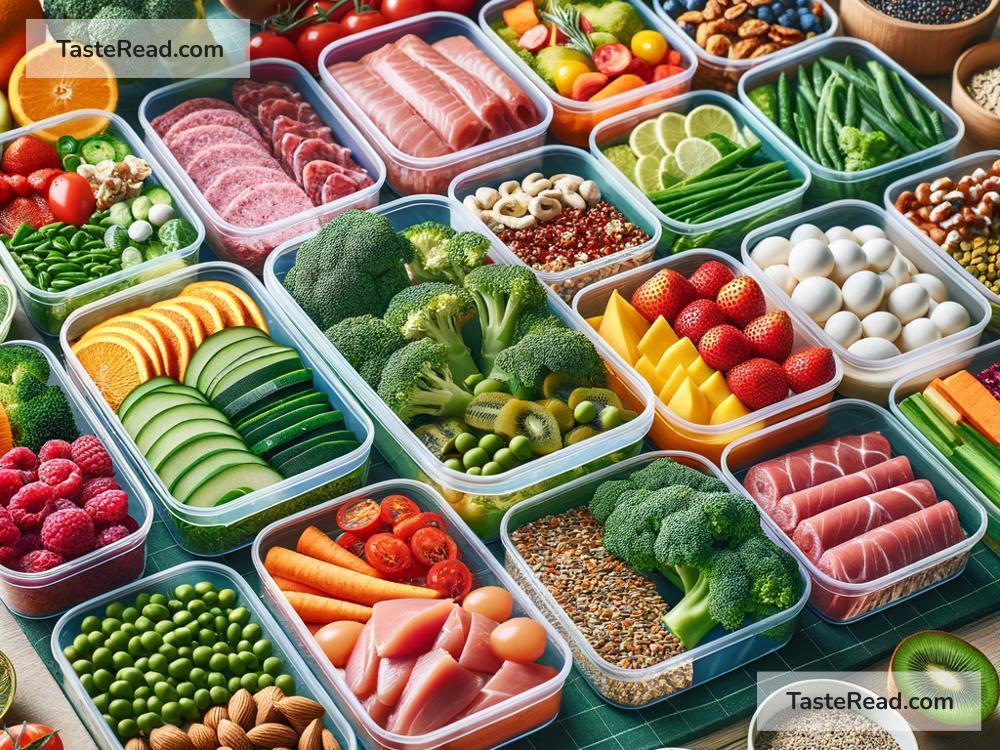The Power of Foods for Enhancing Meal Timing: Simple Tips and Ideas
Meal timing plays an important role in how we feel and function throughout the day. Eating at the right times can boost energy levels, support digestion, and even enhance overall health. But did you know that the kinds of foods we choose also make a big difference in how meal timing works? In this blog, we’ll explore simple and nutritious foods that can help you make the most of your eating schedule.
Why Does Meal Timing Matter?
Your body runs on a clock called your circadian rhythm. This internal clock regulates things like sleep, digestion, and energy levels based on the time of day. Eating meals at consistent times helps your body stay in sync, preventing energy crashes and promoting steady blood sugar levels.
For example, eating breakfast within one or two hours of waking gives your metabolism the kick-start it needs. Lunch should recharge you during your midday lull, while dinner sets the stage for a peaceful night’s rest. Choosing foods that align with these timings can make a huge difference in how your body processes energy.
Foods for Breakfast: Start Strong
Breakfast is often referred to as the most important meal of the day, and for good reason! It fuels your body after hours of fasting while you slept. To keep you going all morning, choose foods that provide a balance of energy and nutrients.
- Whole grains: Oats, whole-grain toast, or quinoa bowls are rich in complex carbohydrates. They digest slowly, giving you sustained energy throughout your morning.
- Protein: Eggs, low-fat yogurt, or plant-based proteins like tofu are excellent breakfast choices. Protein helps with muscle repair and keeps you full longer.
- Healthy fats: Avocado, nuts, or seeds provide steady energy without causing blood sugar spikes.
- Fiber-rich fruits: Berries, apples, and bananas are easy to digest and packed with vitamins to kick-start your day.
Try to avoid sugary cereals or breakfast pastries, as they can cause energy crashes later in the morning.
Foods for Lunch: Recharge Your Body
Lunch is the time to refuel, especially if you’re active during the day. Eating a balanced midday meal helps you stay focused and productive. The key is to combine protein, fiber, and healthy fats with slow-digesting carbohydrates.
- Lean proteins: Grilled chicken, fish, tofu, or legumes like lentils and chickpeas provide muscle-building power and keep hunger at bay.
- Whole grains: Brown rice, quinoa, or whole-grain bread help maintain steady energy levels throughout the afternoon.
- Colorful vegetables: Leafy greens, broccoli, bell peppers, and carrots are loaded with fiber and antioxidants.
- Healthy fats: A drizzle of olive oil, sliced avocado, or a handful of nuts can enhance flavor and provide satiety.
It’s also important to avoid heavy, greasy lunches that can leave you feeling sluggish afterward. Instead, opt for a light but satisfying meal that keeps you energized.
Foods for Dinner: Wind Down
Dinner is all about winding down and preparing your body for restful sleep. Eating too late or choosing highly processed foods can disrupt your body’s natural rhythm, making it harder to fall asleep. Aim for a meal that’s light yet nourishing.
- Lean protein: Salmon, turkey, beans, or eggs are great options for dinner. They provide nutrients without weighing you down.
- Complex carbohydrates: Sweet potatoes, quinoa, or couscous can improve sleep quality due to their calming effect on the body.
- Steamed or roasted vegetables: Zucchini, mushrooms, spinach, or asparagus are light and packed with vitamins. They’re also easy to digest, ensuring a peaceful night’s rest.
- Soothing teas: Herbal teas like chamomile, peppermint, or ginger can be a wonderful addition to your evening meal.
Avoid caffeinated beverages, spicy foods, and heavy desserts at dinner, as they may disrupt sleep patterns.
Snack Smart: Small Bites Between Meals
Timing isn’t just about the main meals—it’s also about smart snacking. Snacks can bridge the gap between breakfast, lunch, and dinner, keeping hunger manageable and energy stable. Choose snacks that complement your meal timing:
- Mid-morning: A handful of nuts, a plain yogurt cup, or a piece of fruit like an apple or orange.
- Afternoon: Rice cakes with almond butter, baby carrots with hummus, or a smoothie.
- Evening: If you need something small before bed, try a banana with peanut butter or a few slices of cheese with whole-grain crackers.
The key is to keep snacks light and focused on whole, nutrient-dense foods.
Hydration: Don’t Forget to Drink Water!
Along with timing your meals, staying hydrated throughout the day is crucial. Drink water consistently to help with digestion, energy, and overall health. Try adding slices of lemon or cucumber for a refreshing boost. Avoid sugary drinks or excessive caffeine, especially later in the day.
Final Thoughts
Meal timing isn’t just about eating at specific hours—it’s also about choosing foods that match your body’s needs throughout the day. Starting the day with energy-boosting breakfast staples, keeping lunch balanced, and opting for light dinners can help your body stay in sync with its natural rhythm.
By incorporating the foods above into your routine, planning your meals becomes simpler and healthier. Remember, consistency is key. Eating at regular intervals and choosing nutrient-rich options will have a positive impact not only on your energy but on your overall well-being.
So, go ahead—make mindful choices with your meals. Enhance your meal timing with these simple food tips, and enjoy the benefits of a better-balanced day!


